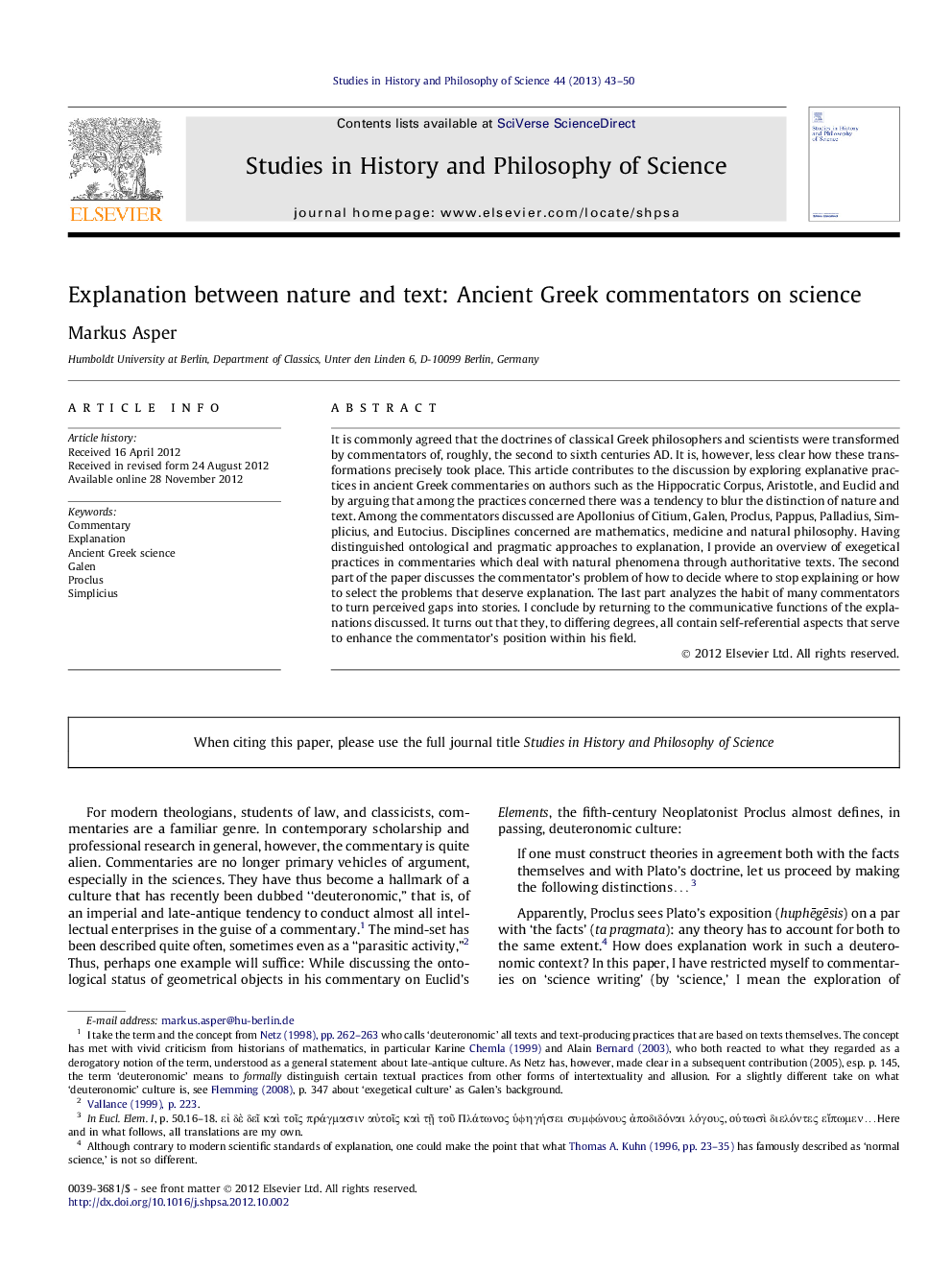| Article ID | Journal | Published Year | Pages | File Type |
|---|---|---|---|---|
| 1160284 | Studies in History and Philosophy of Science Part A | 2013 | 8 Pages |
It is commonly agreed that the doctrines of classical Greek philosophers and scientists were transformed by commentators of, roughly, the second to sixth centuries AD. It is, however, less clear how these transformations precisely took place. This article contributes to the discussion by exploring explanative practices in ancient Greek commentaries on authors such as the Hippocratic Corpus, Aristotle, and Euclid and by arguing that among the practices concerned there was a tendency to blur the distinction of nature and text. Among the commentators discussed are Apollonius of Citium, Galen, Proclus, Pappus, Palladius, Simplicius, and Eutocius. Disciplines concerned are mathematics, medicine and natural philosophy. Having distinguished ontological and pragmatic approaches to explanation, I provide an overview of exegetical practices in commentaries which deal with natural phenomena through authoritative texts. The second part of the paper discusses the commentator’s problem of how to decide where to stop explaining or how to select the problems that deserve explanation. The last part analyzes the habit of many commentators to turn perceived gaps into stories. I conclude by returning to the communicative functions of the explanations discussed. It turns out that they, to differing degrees, all contain self-referential aspects that serve to enhance the commentator’s position within his field.
► The paper examines explanative practices of commentary on scientific works. ► Among the authors discussed are Galen, Proclus, Simplicius, Palladius, and Eutocius. ► It looks at cases where the boundaries between nature and text explained become fuzzy. ► It describes non-formal modes of explanation, such as paraphrase, narrative, diagrams, and ‘syllogizing’. ► These carry a communicative function that goes beyond explanation and is best described as self-referential.
